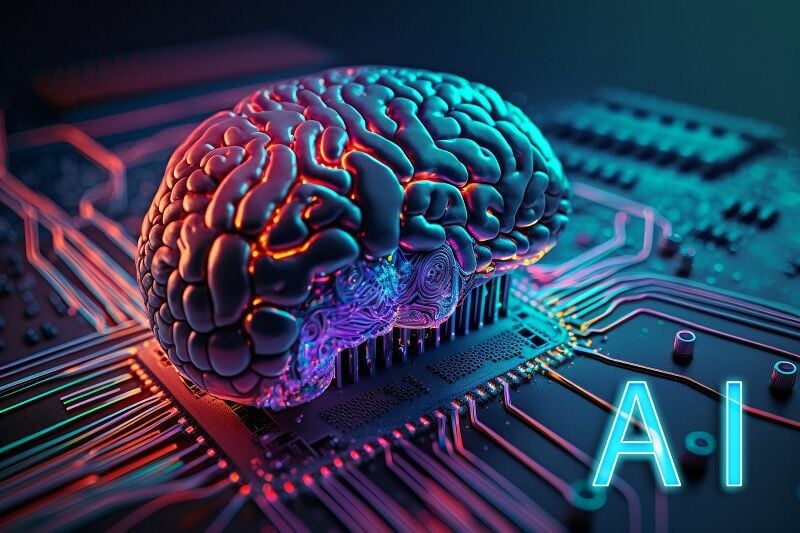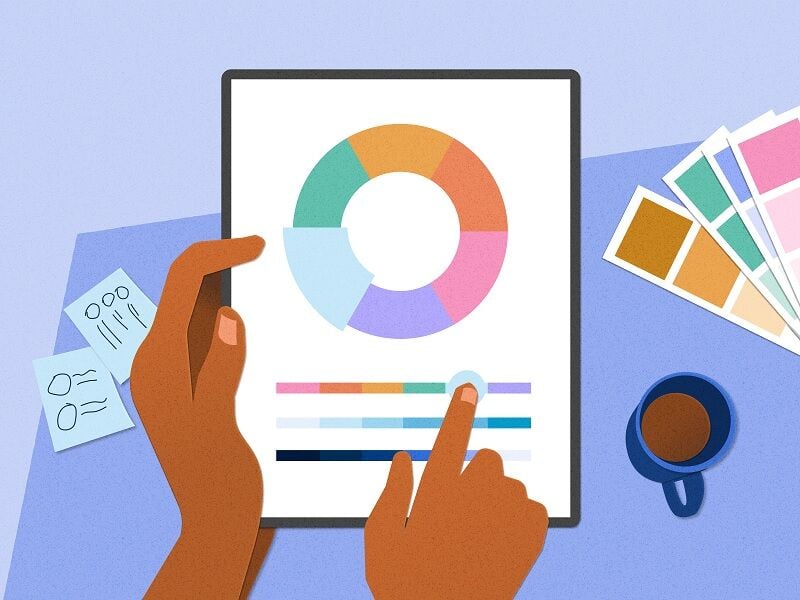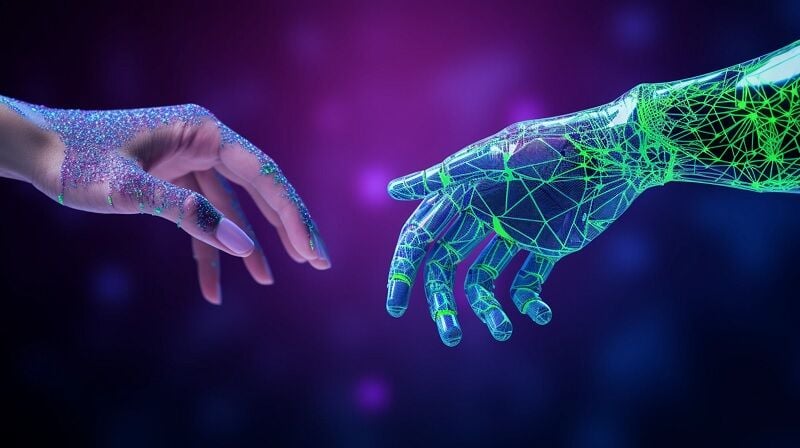Popular AI tools to design your websites with

Envision an era when creating a unique graphic for your online platform required numerous hours of manual effort. We now find ourselves in the year 2024, which has ushered in a revolution in this sphere. Artificial Intelligence (AI) website design instruments have become a preferred choice for many, remarkably diminishing manual labour and introducing efficiency in the design process.
The popularity of these intelligent tools stems from their capability to handle monotonous tasks proficiently. If you are grappling with making your visuals web-compatible or in requirement of inventive design stimulation, rest assured AI will cater to your needs.
Nevertheless, akin to any technological advancement, AI website design tools have their shortcomings. But in the context of constructing your website, these could potentially revolutionise your working protocol. Embark on this exploration of AI’s influence on website design and its potential to enhance your digital persona.
Overview of AI tools in website design

The role of AI in modern web development
Capitalising on AI’s rapid computing ability and sophisticated algorithms, modern web development leverages these advantages to optimise responsiveness and enhance cross-device and browser compatibility. For instance, a web development team can utilise Applitools, a popular AI tool, for automating visual testing. It’s an effective solution for rapidly identifying and rectifying issues like misaligned text and inaccurate element rendering on diverse devices and browsers.
Key features of AI design tools
AI design tools bring a broad spectrum of features to the design table. Let’s delve into some common ones provided by platforms like Narrato Workspace.
-
AI-driven content optimisation: This feature provides suggestions to improve readability and SEO. It’s a feature that enables content creators to achieve robust, high-quality content.
-
Comprehensive workflow management: Streamlines the assignment of tasks and tracking of progress, contributing to improved operational efficiency.
-
Collaborative environment: Introduces a space that fosters team collaboration using intuitive tools, enhancing creative synergy within the team.
-
Customisable content calendars: Facilitates effective content planning and scheduling, ensuring steady and consistent content delivery.
Likewise, tools like Uizard introduce distinct features such as rapid prototyping from sketches, intuitive UI design tools, AI-powered templates and elements, and collaboration features, all aimed to streamline the process of website design.
These features not only save time and reduce manual effort but also present an inclusive platform for both teams and individual creators. They make it possible for even small teams to commence their website design journey without worrying about upfront costs.
Types of AI tools used in website design
In the vast ecosystem of web design, AI tools have been an extraordinary innovation, revolutionising the way websites are developed. Let’s dive into some popular AI tools to design websites with, and categorise them based on their primary function.
AI website builders
AI website builders have grown increasingly popular, and for good reason. A prime example is Hostinger’s AI Website Builder, an intuitive tool integrating artificial intelligence to offer a streamlined website creation process. This tool uses an array of pre-made layouts suited for various types of websites, alongside generative AI technology to automatically fill your page layouts with unique content. Whether you’re after custom colours, fonts, images, or specific design elements, this builder is a comprehensive solution for both beginners and seasoned website creators alike.
AI-assisted design and content creation
In an industry where quality content is integral, AI-assisted content creation is a game-changer. Tools like Surfer, Zyro, and Grammarly are powerful allies for web designers, offering personalised content creation capabilities catering to various website needs. Zyro, for example, aids in website building, slogan writing and even logo creation.
In addition, AI colour palette generators such as Colormind and Khroma, have been designed to aid web designers in creating visually appealing colour schemes for their projects quickly.
AI for testing and optimisation
The realm of AI extends beyond creation and design, reaching into aspects of testing and optimisation. AI tools help automate visual testing, enhancing responsiveness and cross-device compatibility. By leveraging rapid computing and advanced algorithms, tools like Applitools receive the commendation they deserve. AI also plays a significant role in content optimisation with tools like Narrato Workspace handling content calendars, and facilitating workflow management and collaboration.
In essence, AI is reinventing the fundamental process of web design, ensuring that the end product is not just aesthetically pleasing, but also functional and high-performing.
Benefits of using AI in web design

The advantages of employing AI in web development are becoming increasingly evident. From boosting efficiency to enhancing personalisation, AI tools have proved transformative in designing websites.
Efficiency and automation
AI technology affords unprecedented efficiency in web design. It aids in automating repetitive tasks like coding, thus saving time for web designers. For instance, popular AI tools like the AI website builder and Narrato Workspace facilitate automated operations. The latter offers a comprehensive suite of tools for planning, creating, and optimising content. Additionally, it simplifies task assignments and progress tracking via comprehensive workflow management.
Enhanced creativity and personalisation
AI tools can generate a plethora of design elements, from text images to ideal font combinations and colour schemes. One such popular tool is Surfer, an SEO tool infused with AI technology. It tailors content to your target audience, aiding in a personalised touch. Zyro, another AI-driven tool, generates creative ideas bolstering the design process. Hence, AI allows room for enhanced creativity and personalised web design, catering to the unique needs of each project.
Challenges and considerations
While popular AI tools for designing websites, such as Narrato Workspace and Applitools, have revolutionised the industry, they also present some challenges and considerations that need addressing.
Accuracy and limitations
Utilising AI for web design streamlines processes, yet it has its limitations. For example, despite AI’s efficiency in automating visual testing, occasional inaccuracies might emerge. Tools like Applitools facilitate rapid error detection, helping designers rectify misaligned text and incorrectly rendered elements. However, even some of the most popular AI tools can’t completely eradicate error occurrence. Perception-based nuances, subject to human interpretation and understanding, may not be captured in entirety by the AI systems. Thus, AI’s inability to completely replicate human insight may result in minor discrepancies.
Ethical and privacy concerns
Additionally, integrating AI into web design introduces potential ethical and privacy concerns. As AI’s role in generating personalised content increases, so does the question of information sensitivity. If improperly handled, using AI to automate tasks, track progress, and optimise content creation could lead to potential breaches of privacy. While AI can enhance the user experience, ensuring appropriate privacy controls is paramount. Safeguarding user data whilst promoting personalisation forms a key consideration whilst incorporating AI tools in web designing.
Future of AI in website design

Discover the revolution in website design, shaped by innovative AI tools and emerging trends in the field.
Emerging technologies and trends
In recent years, AI technology serving website design has witnessed remarkable growth with popular AI tools, such as AWS Amplify and Adobe Sensei, leading the charge.
AWS Amplify, for instance, grandly simplifies the development and deployment process through AI-powered code generation, data visualisation, and even predictive analytics. It’s a comprehensive tool that seamlessly integrates with other AWS services and automates the deployment of web applications.
Similarly, Adobe Sensei, another prominent AI tool, redefines the boundaries of creativity for designers. Integrated across Adobe’s Cloud platform, it ushers in new possibilities for digital experiences.
Predictions for AI integration
Highly intuitive and user-friendly designs are becoming the norm, thanks to artificial intelligence. Predictions point towards increased integration of AI in website design, with exciting developments on the horizon.
Emphasis is anticipated to shift towards tools offering advanced customisation options. AI tools are expected to provide an extensive range of templates, design elements and styling options, giving users the freedom to fine-tune their websites to align perfectly with their brand’s vision.
It has been noted how Artificial Intelligence-based instruments such as Applitools, Surfer, and Zyro, are catalysing a transformation in the realm of website design. These tools are instrumental in refining complex procedures and notably improving user experience. The introduction of AWS Amplify and Adobe Sensei promises to stretch the horizons of ingenuity in this field, introducing an array of previously unforeseeable creative opportunities. It remains evident that the future of website design is likely to be dominated by the advent of AI. Increased levels of customisation, seamless integration of services, and scalability congruent to the dynamic demands of web-based development, are projected advancements in this sector. As a professional in the domain of web design, it is advantageous to incorporate these AI tools into your practice. They represent not merely a future trend, but stand as present-day resources, primed to elevate your designs to unprecedented heights.
Want to know more about the future of quantum computing and what to expect? The term quantum computer has been popping up a lot in scientific chit-chats. Why, you ask? Well, these bad boys can do computations at lightning speed, way faster than your everyday computer! The world of quantum computing is like getting express shipping on everything from making new medicines to optimising investment portfolios.
Latest Thailand News
Follow The Thaiger on Google News:


























